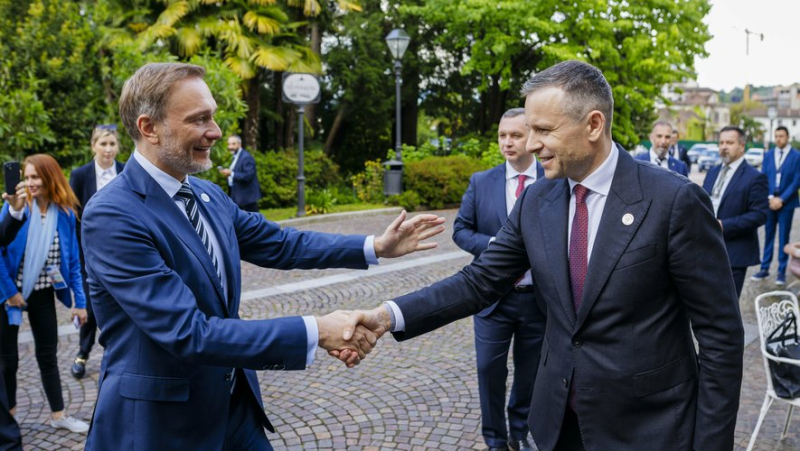War in Ukraine: G7 wants to use frozen Russian assets to help kyiv financially

Le ministre des Finances de l’Ukraine a été accueilli par ses pairs du G7. Photothek Media Lab – Thomas Imo
Some $300 billion in Russian assets have been frozen since the Russian invasion in February 2022. Moscow promises to respond.
The G7 will explore ways to use future earnings from frozen Russian assets to help Ukraine, finance ministers from the Group of Seven most industrialized countries (G7) said on Saturday , according to a draft press release consulted by Reuters.
The G7 froze some $300 billion in Russian assets shortly after Moscow invaded its neighbor in February 2022."We are making progress in our discussions on possible ways of bringing extraordinary profits from immobilized Russian sovereign assets to Ukraine", we can read in the draft of press release. The text is not expected to be significantly changed before the final version which will be published later on Saturday, a G7 source said.
Make Russia pay
Russian Finance Minister Anton Silouanova announced via the Tass agency that Russia would retaliate if Western countries illegally used its assets. The G7 ministers were to be joined today by Ukrainian Finance Minister Serhi Marchenko, whose war-torn country is struggling to contain a Russian offensive in the north and east more than two years after it began of the Russian invasion.
The meeting of finance ministers and central bankers in Stresa, northern Italy, aims to present options for financing Ukraine to G7 heads of government, who will consider them at the meeting. rsquo;a peak in mid-June. "In accordance with our respective legal systems, Russia's sovereign assets in our jurisdictions will remain immobilized until Russia pays for the damage it has caused to l’Ukraine", indicates the press release.
China, also in the sights
Rising Chinese exports and what G7 ministers call its industrial overcapacity was another theme center of the two-day meeting in Stresa. "We express our concerns about China's widespread use of non-market policies and practices that harm our workers, our industries and to our economic resilience", we can read in the press release. "We will continue to monitor the potential negative impacts of overcapacity and consider taking steps to ensure a level playing field, consistent with the principles of the World Trade Organization (WTO). )", we add.


